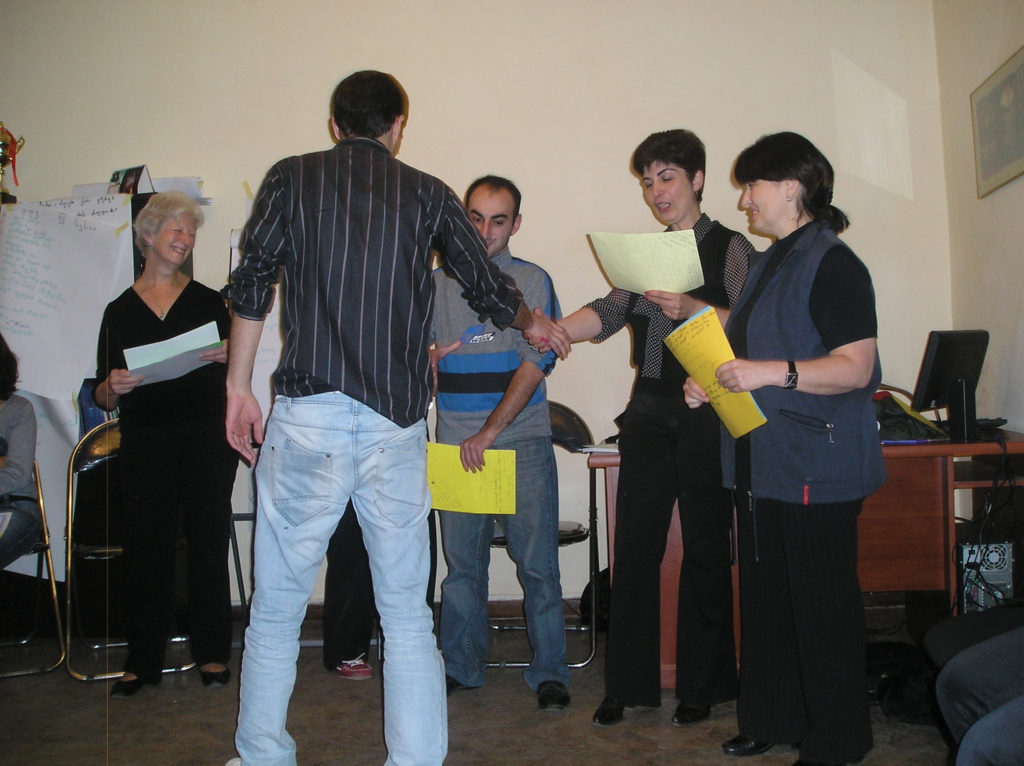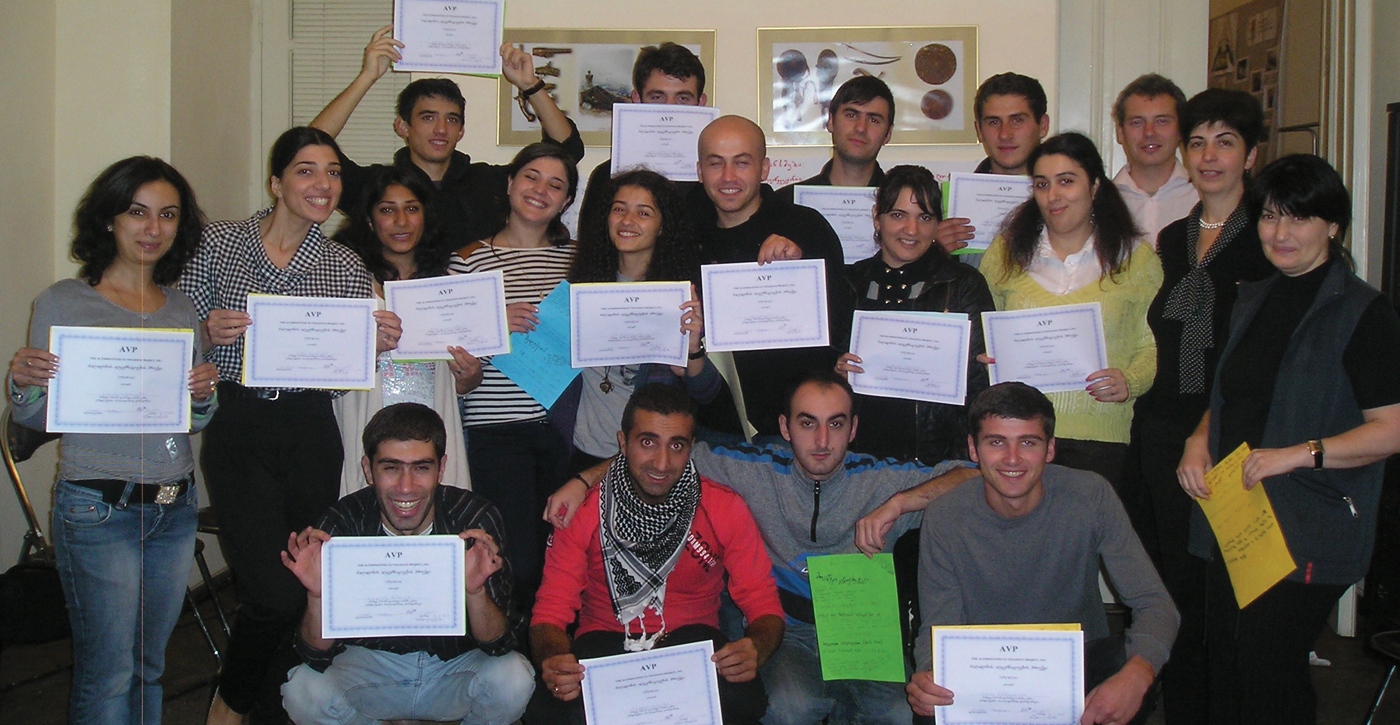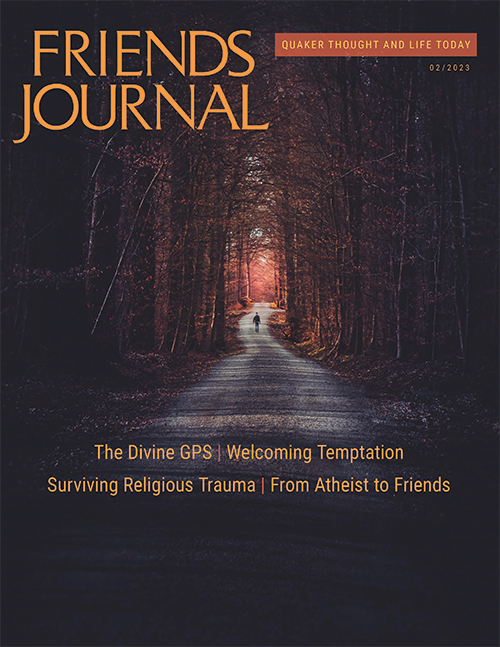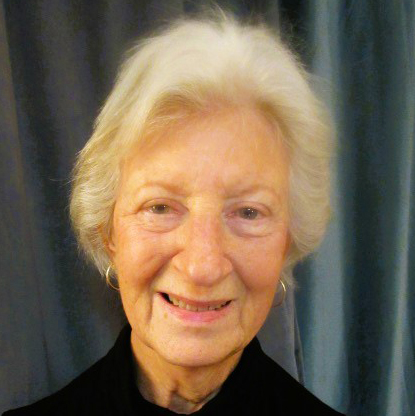Since Russia’s full-scale invasion of Ukraine a year ago, I have read numerous articles by Friends examining whether the peace testimony remains relevant in our times. As someone who carries a leading to work for world peace my unequivocal answer is yes. Here’s why.
The first understanding is that none of Friends’ testimonies stand alone. Simplicity, peace, equality, community, integrity—they are all intertwined. Together, they lead us to a way of life that defines us as Quakers. If we each seek peace—not just an absence of war or violence, but that deep internal peace that our practice brings—then we are better able to live into each of our other testimonies.
We live in a world where all too frequently people rely on a model of crisis intervention, on a global, community, and even on a personal level. We often wait until the very last minute to address a problem, when it has reached a crisis point with almost no hope of rectifying it. This makes us feel hopeless, and in that place of hopelessness, we question the possibility of ever finding our way to peace. When we are truly at peace within ourselves and seeking equality for all, and strengthening our community relations, and living from a place of deep integrity and simplicity, then we will also have the wisdom and strength, the grace and discernment to listen and see and feel the early seeds of unrest, and to act before a crisis develops.
In 2008 I was blessed with a call to do peacemaking within the country of Georgia. That year, following a long period of worsening relations between the two countries, Russia invaded Georgia, creating a huge population of internally displaced people who were without housing, food, or jobs. Georgians faced the challenge of finding ways to support their physical, emotional, and spiritual needs. Amidst this turmoil, Friends in Georgia asked New York Yearly Meeting (NYYM) for help with refugee aid and conflict transformation skills. At the time I was serving NYYM as peace concerns coordinator, and it was within that capacity that the yearly meeting asked me to consider carrying the work in Georgia. After much prayerful discernment, I was led to say yes.
As a facilitator in the Alternatives to Violence Project (AVP), I carried my understanding of that work to Friends in Georgia, and over the course of three years, I made three trips there (one for ten days, one for three weeks, and one for five weeks). Each AVP workshop is three days in duration. We did back-to-back workshops throughout my time in Georgia. On my last trip I was blessed with the knowledge that I was leaving behind a cadre of young Georgians who had become gifted AVP facilitators and who were excited to carry on the work of peacemaking in their own country.

The author (left) at the graduation ceremony. Photo by by Mikhael Elizbarashvili.
This past summer I was asked if I would speak at NYYM’s annual sessions about the work I’ve done in the country of Georgia. As I prepared my talk, I thought about my understanding of peacemaking as the planting of seeds with the clear understanding that we may never see those seeds bear fruit. I was curious to know if the work we had done with the AVP facilitators over ten years ago had changed their perspectives or way of life in any way. I have stayed in touch with many of my Georgian friends and so I decided to reach out to them. I asked one question: Were you able to carry anything that you learned from our time together into the way that you live and work now? The responses I received touched me deeply.
Each person spoke of how the AVP experience opened their understanding of how they could use the tools they already had within themselves to find peaceful ways to deal with conflict in their lives. For many it caused them to shift their career paths. Natuli was working as a bank manager and in an abusive marriage when I met her. After her AVP experience she left both her marriage and her job. Today she works with the United Nations as a coordinator of the UN Women’s “Voices against Violence” project. Natuli shared that she “wanted to do more to spread peace . . . to show how amazing life is without violence.”
Others shared that they use the skills they’ve learned in their daily work. Davit works with children and says that AVP has helped him to manage and control his emotions and that he now has the skills to resolve conflicts by peaceful means. These are skills he actively passes on to the children he works with. Anna began working with international peacemaking organizations. Her AVP experiences showed her that “the most meaningful moves we can make now is to work with the young generation to lead them in the right direction for future peace.” Eliko remains in Georgia and heads an organization doing AVP both in Georgia and Ukraine. Her organization also focuses on human rights protections for people affected by conflict. Kakha’s work is as a sports coach. He says that he has learned to “try to fix any kind of problems with talk and reflection.” He also tries to “see the other side of the challenge or conflict,” and he feels he has the “perfect tool to [make] my life peaceful and easier.” Tamuna shared how her life changed:
AVP opened my eyes and I learned how we can reply to violence nonviolently. Thanks to [the] AVP program I started to feel the life again, started to believe in myself again. I became emotionally stable (again), and the quality of my and my children’s life improved. Many thanks to this program and people who work hard to bring peace in the world.
These are just a few of the people in the country of Georgia who I was privileged to meet and to work with. They are living examples of what our loving and caring outreach can do. They represent a small fraction of the seeds planted in Georgia—seeds that have sprouted, bloomed, and continue to bear fruit as they themselves plant the seeds of peace. It is an immense blessing when we are able to see the seeds we’ve planted bear fruit.
As Friends, living into our testimonies can and does have the potential to change lives at home and around the world.





Comments on Friendsjournal.org may be used in the Forum of the print magazine and may be edited for length and clarity.